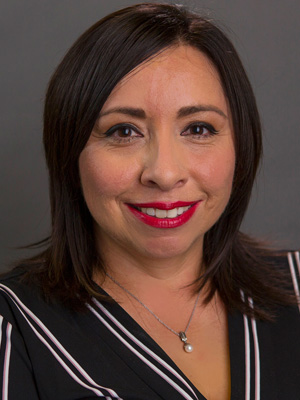2020-08
End Undue Student Confinement or Physical Restraining

Rep. Angela Romero (UT), co-sponsor
Sponsored by Sen. Martín Quezada (AZ) and Rep. Angela Romero (UT)
Ratified by the Caucus on December 11, 2020
WHEREAS, the U.S. Department of Education defines student seclusion as an “involuntary confinement of a student alone in a room or area from which the student is physically prevented from leaving;”[1] and,
WHEREAS, the U.S. Department of Education defines student physical restraint as “a personal restriction that immobilizes or reduces the ability of a student to move his or her torso, arms, legs or head freely;”[2] and,
WHEREAS, the use of these practices as a punishment for undesired behavior causes injuries, trauma and in some cases death;[3] and,
WHEREAS, the 2015–2016 Civil Rights Data Collection on School Climate and Safety shows that the practices of restraint and seclusion are most often used (71% and 66% respectively) on students with disabilities or special needs;[4] and,
WHEREAS, a study by the University of Colorado-Boulder found that autism rates have risen by 73% among Hispanics aged 3-5;[5] and,
WHEREAS, schools across the United States have been using physical restraint and seclusion rooms as a threat or punishment for undesired behaviors such as bad language, refusal to finish classwork and the defying of authority figures;[6] and,
WHEREAS, an investigation by ProPublica Illinois found that kids were kept isolated in these rooms for hours, often causing them to fall behind in their academics;[7] and,
WHEREAS, ProPublica also found that students sent to seclusion rooms were so desperate for release that some harmed themselves to call attention to their plight, others defecated or urinated because nobody would release them to allow them to do so;[8] and,
WHEREAS, in one of the most troubling cases, school officials were charged with manslaughter after a boy with autism was restrained to the point of vomiting and stopped breathing in a private specialized school;[9] and,
WHEREAS, a guide to state restraint and seclusion laws, regulations, rules and policies published in 2019 through the Autism National Committee (AutCom) establishes that restraint and seclusion expose children to danger and escalates difficult behaviors;[10] and,
WHEREAS, that same guide also establishes that as of that year, only 29 states had laws that protected all children from both retraint and seclusion, except in cases where there was risk of immediate physical danger. The District of Columbia, Idaho, Missouri, Nebraska, North Dakota, Oklahoma, South Carolina, South Dakota, Virginia and Wyoming had weak or no regulaton, even for students with disabilities.[11]
THEREFORE, BE IT RESOLVED, that the National Hispanic Caucus of State Legislators is against the use of seclusion and restraint except on scenarios in which there is an emergency or threat of physical danger to the student or others around them; and,
BE IT FURTHER RESOLVED, that any legislation or regulation to address these practices should apply to all the schools, public and private, in the state; and,
BE IT FURTHER RESOLVED, that staff in schools across the country receive extensive training on alternative methods to deal with students with disabilities in scenarios in which students misbehave or are being disruptive; and,
BE IT FURTHER RESOLVED, if there was the need to recur to these measures these will only last as long as it takes to find other alternatives to deal with the students; and,
BE IT FINALLY RESOLVED, that measures are taken so that whoever violates regulations of restraint and seclusions faces repercussions for their actions.
THE NHCSL EXECUTIVE COMMITTEE UNANIMOUSLY APPROVED THIS RESOLUTION ON DECEMBER 11, 2020 AT ITS FALL MEETING HELD VIA VIDEOCONFERENCE.
THE NATIONAL HISPANIC CAUCUS OF STATE LEGISLATORS UNIANIMOUSLY RATIFIED THIS RESOLUTION ON DECEMBER 11, 2020, AT THE ANNUAL MEETING HELD VIA VIDEOCONFERENCE.
[1] https://www.csgmidwest.org/policyresearch/0915-seclusion-restraint.aspx
[2] https://www.csgmidwest.org/policyresearch/0915-seclusion-restraint.aspx
[3] https://www.latimes.com/california/story/2019-11-13/autistic-boy-dies-school-restraint-educators-charged-manslaughter
[4] https://www2.ed.gov/about/offices/list/ocr/docs/school-climate-and-safety.pdf#page=12
[5] https://www.colorado.edu/today/2019/08/28/autism-rates-increasing-fastest-among-blacks-and-hispanics
[6] https://features.propublica.org/illinois-seclusion-rooms/school-students-put-in-isolated-timeouts/
[7] https://features.propublica.org/illinois-seclusion-rooms/school-students-put-in-isolated-timeouts/
[8] https://features.propublica.org/illinois-seclusion-rooms/school-students-put-in-isolated-timeouts/
[9] https://www.latimes.com/california/story/2019-11-13/autistic-boy-dies-school-restraint-educators-charged-manslaughter
[10] http://www.autcom.org/pdf/HowSafeSchoolhouse.pdf
[11] Details are available at pages 18-21 in http://www.autcom.org/pdf/HowSafeSchoolhouse.pdf In addition, New Jersey, protects against physical restraining but not seclusion because it does not include parental notification for that. Delaware provides protections through criteria in a state waiver process. Arkansas provides some protection from seclusion, but none from restraint. Virginia passed legislation in 2015 that requires regulation that as of the study date had not been adopted. New York has meaningful protections for children with disabilities and some meaningful protections for children without disabilities. The study does not include Puerto Rico.
